Your dog can’t say, “Hey, something feels off.” But their body will.
That weird head tilt? Not just quirky.
Skipping meals? Not just picky.
A little limp or a sudden change in sleep? Could be the first whisper of something serious.
Dogs are masters of hiding discomfort—until it’s too loud to ignore.
But if you know what to look for, you can catch problems before they snowball.
It’s not about turning into a paranoid pet parent.
It’s about tuning in to the subtle stuff—those early, quiet red flags your dog is hoping you’ll notice.
Let’s uncover the signs that matter most—
Because sometimes, a healthy future starts with spotting one tiny change today.
Change in Appetite

Dogs love their meals, and a sudden change in appetite can be alarming. It may signal underlying health issues. Imagine walking into your kitchen and noticing your dog’s untouched food bowl—a sight that raises questions. Such behavior might indicate dental problems, gastrointestinal issues, or even emotional distress.
Consistency is key; a healthy dog typically maintains a regular feeding routine. If your furry friend suddenly avoids meals, it could be time to consult a vet. Meanwhile, overzealous eating might hint at issues like diabetes or thyroid problems, requiring timely intervention.
Lethargy

Energetic romps around the park are a dog’s delight. But when your once lively companion becomes a couch potato, lethargy might be the culprit. Often overlooked, this can be an early indicator of a range of health concerns.
From infections to chronic illnesses, a lethargic dog might be silently suffering. Engage them with their favorite toy; if their response is lackluster, a vet visit may be warranted. It’s essential to differentiate between a lazy afternoon and a persistent lack of energy—your dog’s health might depend on it.
Stay observant, stay proactive.
Excessive Thirst
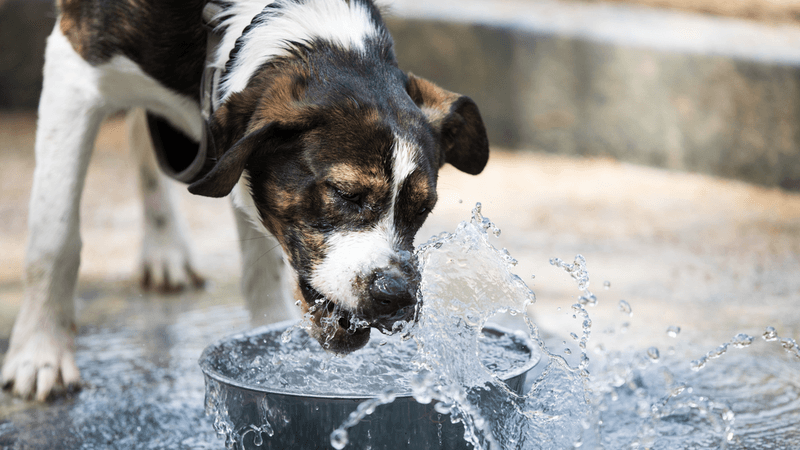
Dogs hydrate frequently, but excessive thirst can hint at something amiss. Picture your dog, making frequent trips to the water bowl, causing you to refill it more often than usual.
This behavior may point to conditions like diabetes, kidney disease, or even a fever. Monitoring their water intake can help spot abnormalities early. Addressing excessive thirst promptly can prevent more severe complications down the road.
Regular vet check-ups can identify issues before they escalate, ensuring your pet stays happy and hydrated.
Unusual Odors
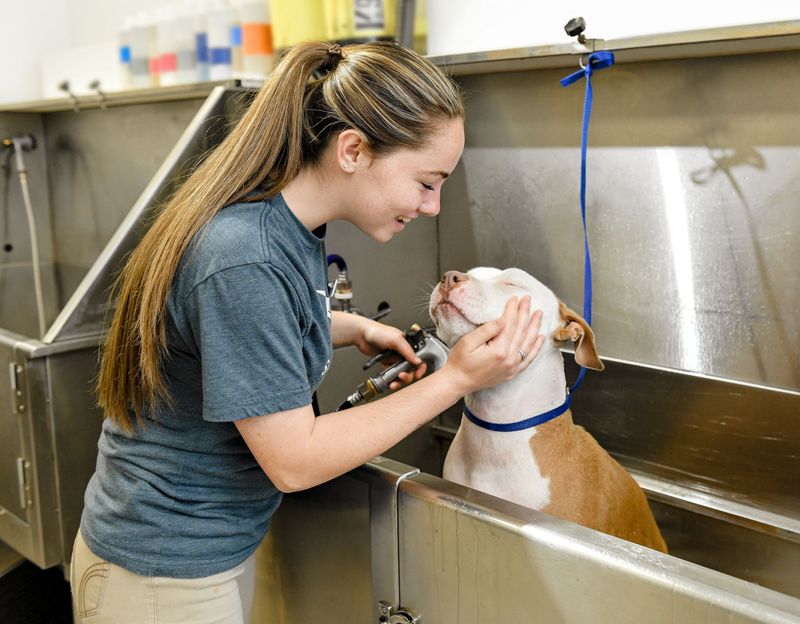
Dogs can develop odors, but when they become overpowering, it could signal a problem. Imagine sitting with your dog on a sunny porch and noticing an unexpected, strong smell. Such odors may indicate dental disease, skin infections, or ear problems.
Regular grooming and dental care can prevent many odor-related issues. However, a persistent smell warrants a vet’s expertise, as it can be a harbinger of more severe health conditions. Addressing it early can improve your pet’s quality of life, offering both relief and reassurance.
Stay attentive to unusual scents.
Persistent Coughing

A dog’s cough might echo through your home, capturing your attention. Persistent coughing, unlike an occasional sneeze, can indicate serious health issues like respiratory infections or heart disease.
Imagine sitting beside your pet on a cozy sofa, concerned about their hacking cough. Such symptoms should not be ignored, as early intervention can prevent complications.
Consulting a vet promptly can lead to effective treatments, ensuring your furry friend’s well-being. Your vigilance in recognizing these signs plays a crucial role in their health journey.
Weight Gain or Loss

Weight fluctuations in dogs can be as telling as they are in humans. A sudden change—either gain or loss—can indicate health problems. Picture your pet on a scale during a vet visit, with numbers that surprise you.
Such changes might suggest hormonal issues, like hypothyroidism, or digestive disorders. Regular weigh-ins can help monitor your dog’s health, catching anomalies early. Whether it’s an unexpected gain or loss, consulting a vet can set the course for proper care.
Routine checks are vital to maintain your pet’s optimal health.
Frequent Urination

Frequent urination in dogs is more than just a nuisance; it can signal health issues. Picture your dog in the garden, urinating with unusual frequency, prompting concern.
This symptom might indicate urinary tract infections, diabetes, or other renal problems. Keeping track of these habits is crucial for early detection.
Addressing it promptly with your vet can prevent more severe complications, ensuring your pet’s comfort and health. Monitoring bathroom habits provides insight into your dog’s well-being.
Stay vigilant and proactive in their care.
Changes in Coat Condition
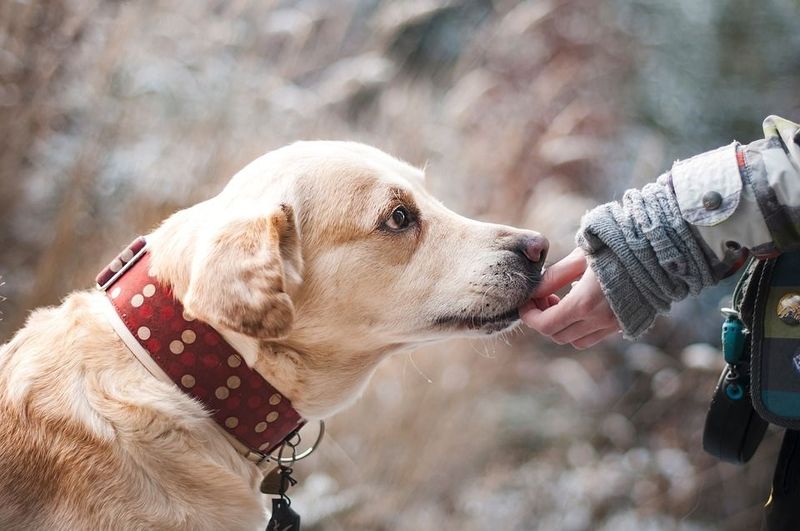
A dog’s coat reflects its health, and changes can signify underlying issues. Imagine petting your furry friend and noticing their once lustrous coat looking dull and patchy.
Such changes might hint at nutritional deficiencies, allergies, or skin diseases. Regular grooming and balanced nutrition play key roles in maintaining a healthy coat.
If the condition persists, a vet can provide guidance, ensuring your pet’s fur remains their crowning glory. Recognizing these signs early can lead to effective solutions and a happy dog.
Bad Breath
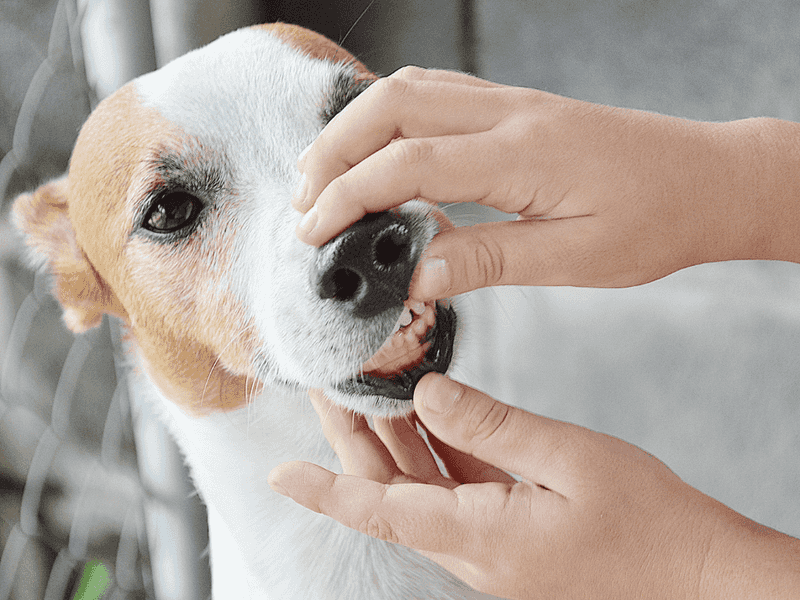
A dog’s breath is rarely minty fresh, but persistent bad breath often signals health problems. Picture your dog at the window, panting, with an unmistakable odor wafting through the room.
Commonly linked to dental issues, bad breath might also indicate more serious conditions like kidney or liver disease. Regular dental care can prevent many issues, but persistent halitosis requires a vet’s attention.
Addressing it can lead to healthier teeth and overall well-being. Monitoring your pet’s breath is a simple yet effective way to catch potential health concerns.
Itching and Scratching

Every dog scratches occasionally, but incessant itching can be a red flag. Imagine your pet in a lush field, scratching with a fervor that seems unusual.
This behavior might suggest allergies, parasites, or skin infections, requiring prompt attention. Regular check-ups and flea preventatives can help mitigate these issues.
If the itching persists, consulting a vet can lead to effective treatments, ensuring your pet’s comfort and health. Observing these behaviors closely can help in early detection and care.
Limping or Lameness

A dog’s gait is usually carefree, but limping can indicate underlying issues. Picture your pet at the park, favoring one leg and moving with noticeable discomfort.
Such symptoms might point to injuries, arthritis, or even neurological problems. Monitoring changes in movement can help detect these issues early.
Consulting a vet can lead to a proper diagnosis and treatment plan, ensuring your pet regains mobility. Prioritizing their comfort and health can make a significant difference in their quality of life.
Red or Cloudy Eyes
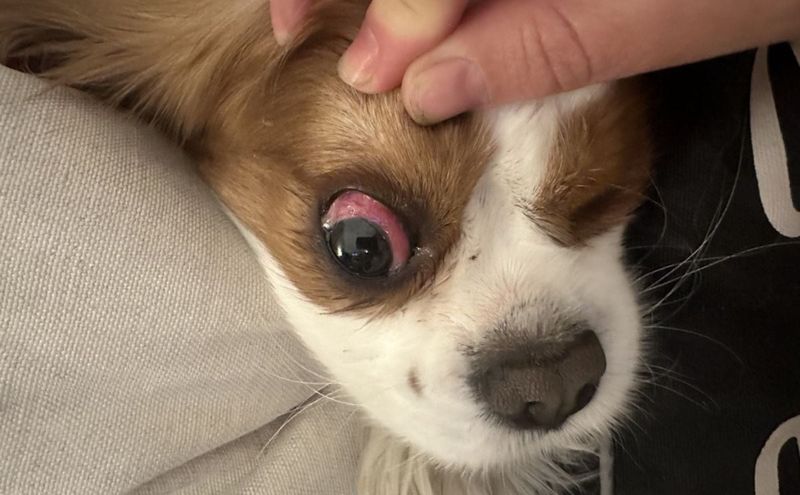
The eyes are the windows to the soul—and a dog’s health. Imagine a close-up shot capturing the redness or cloudiness in your pet’s eyes, sparking concern.
Such symptoms might indicate infections, glaucoma, or other ocular diseases. Regular eye checks can prevent severe issues, maintaining your dog’s vision and comfort.
If you notice these signs, a vet’s intervention can lead to effective treatments, safeguarding their sight. Observing your pet’s eyes offers insight into their overall well-being.
Changes in Sleeping Pattern

A dog’s sleep can reflect its health, and changes might be a symptom of underlying issues. Picture your pet sleeping at odd hours, in unusual positions, prompting curiosity.
Such variations might suggest stress, pain, or even hormonal imbalances. Observing these patterns can provide insights into their health.
If changes persist, consulting a vet can lead to a proper evaluation and peace of mind. Understanding your dog’s sleep habits is a key part of maintaining their overall well-being.
Vomiting

Vomiting is a distressing sight and can signal health issues in dogs. Imagine your pet looking queasy, sitting near their water bowl with remnants of vomit nearby.
While occasional vomiting isn’t unusual, frequent episodes could indicate gastrointestinal problems or infections. Monitoring their behavior and diet can help identify triggers early.
If vomiting persists, seeking veterinary advice is crucial to rule out serious conditions. Keeping track of these events ensures timely intervention, promoting your pet’s health and comfort.
Behavioral Changes

Behavioral changes in dogs can be subtle yet significant indicators of health problems. Imagine your pet acting out of character, appearing confused in a familiar setting.
Such shifts might point to cognitive decline, stress, or unseen pain. Observing these changes closely can help identify underlying issues early.
Consulting a vet can lead to a proper understanding and appropriate care. A dog’s behavior is a window into their health, providing clues that shouldn’t be overlooked.
Swelling or Lumps

Discovering a lump on your dog is unsettling, often sparking worries about their health. Picture a vet examining your pet, focusing on a noticeable swelling.
While not all lumps are dangerous, they might indicate infections, cysts, or tumors. Regular examinations can help identify these issues early, guiding necessary action.
If you find a lump, a vet’s diagnosis is essential to determine the next steps. Ensuring your pet’s health requires attentiveness and prompt care, crucial for their well-being.

